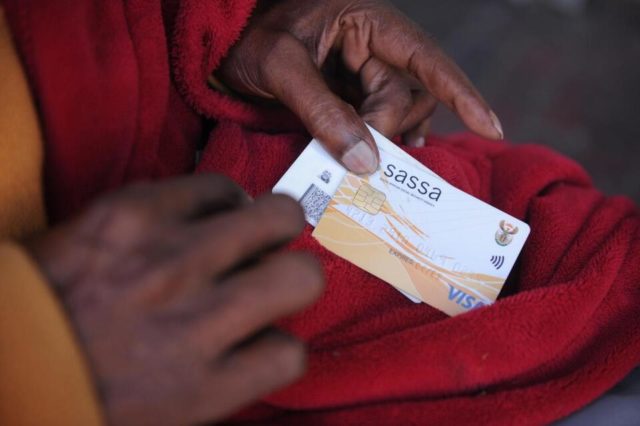‘The committees emphasised the importance of effective monitoring and evaluation to ensure that duplication, fraud and corruption will have no space to thrive as a result of this pandemic.’
THE JOINT parliamentary committees on Social Development and select committee on Health and Social Services have asked Sassa to guard against fraud and corruption in the relief aid to social grant recipients.
In their joint committees heads Mondli Gungubele and Maurencia Gillion said: “The committees emphasised the importance of effective monitoring and evaluation to ensure that duplication, fraud and corruption will have no space to thrive as a result of this pandemic.”
Their call came as Black Sash has urged the government not to discriminate against unemployed South Africans and refugees – who do not have valid IDs and relevant documentation – when applying for the R350 unemployment grant offered by President Cyril Ramaphosa.
Black Sash national director Lynette Maart said the government and Sassa should instead try to get that information from Home Affairs, the South African Revenue Services (Sars), the Unemployment Insurance Fund and the National Student Financial Aid Scheme (NSFAS).
“The roll out of a temporary Covid-19 Social Relief of Distress grant to those who have little to no income is a significant new intervention. “This adult grant must include parents who are unemployed, regardless of whether they are already receiving the CSG grant,” Maart said.
She said Black Sash wants the government to increase the amount of the grant from R350 to at least R1,000 saying the current amount of R350 was significantly less than the value of the food parcel distributed by the South African Social Security Agency (Sassa), which ranges from R1 000 to R1 200.
“Many South Africans are structurally unemployed. The formal economy is unable to absorb all those unemployed for the foreseeable future.
“The roll out of the temporary Covid-19 grant is the first step to a permanent Basic Income Grant for those between 18 to 59 years with little to no income.
“Our government is slowly moving towards the progressive realisation of social security. Government is developing regulations and procedures to implement the new Covid-19 grant application and means testing process for applicants,” Maart said.
However, she said, these measures must not be an administrative burden for potential beneficiaries.
“The required documentation must be limited to an Identity Number (ID), the required documents for refugees and permanent residents, and contact details and/or bank account details.
“Provision must also be made for applications without IDs in terms of Reg 11 (1) of the Social Assistance Act for people who do not yet have an ID or have lost their ID,” Maart said.
She said Sassa must use the databases of government entities including the Department of Home Affairs, the UIF), South African Sars and NSFAS rather than place an onerous burden on beneficiaries to obtain the documents.
Black Sash also said Sassa must have clear criteria in place and also communicate the recourse mechanisms to those whose applications are denied.
“The bank account into which money is transferred must not allow banks or credit providers to seize the grant to pay off any prescribed debt, which is currently the case in the USA,” Maart said.
She also said that commercial banks, under the auspices of Banking Association South Africa (BASA), must permanently waive all banking fees for all social grant beneficiaries so that they could benefit from the full cash value of their social grants.








